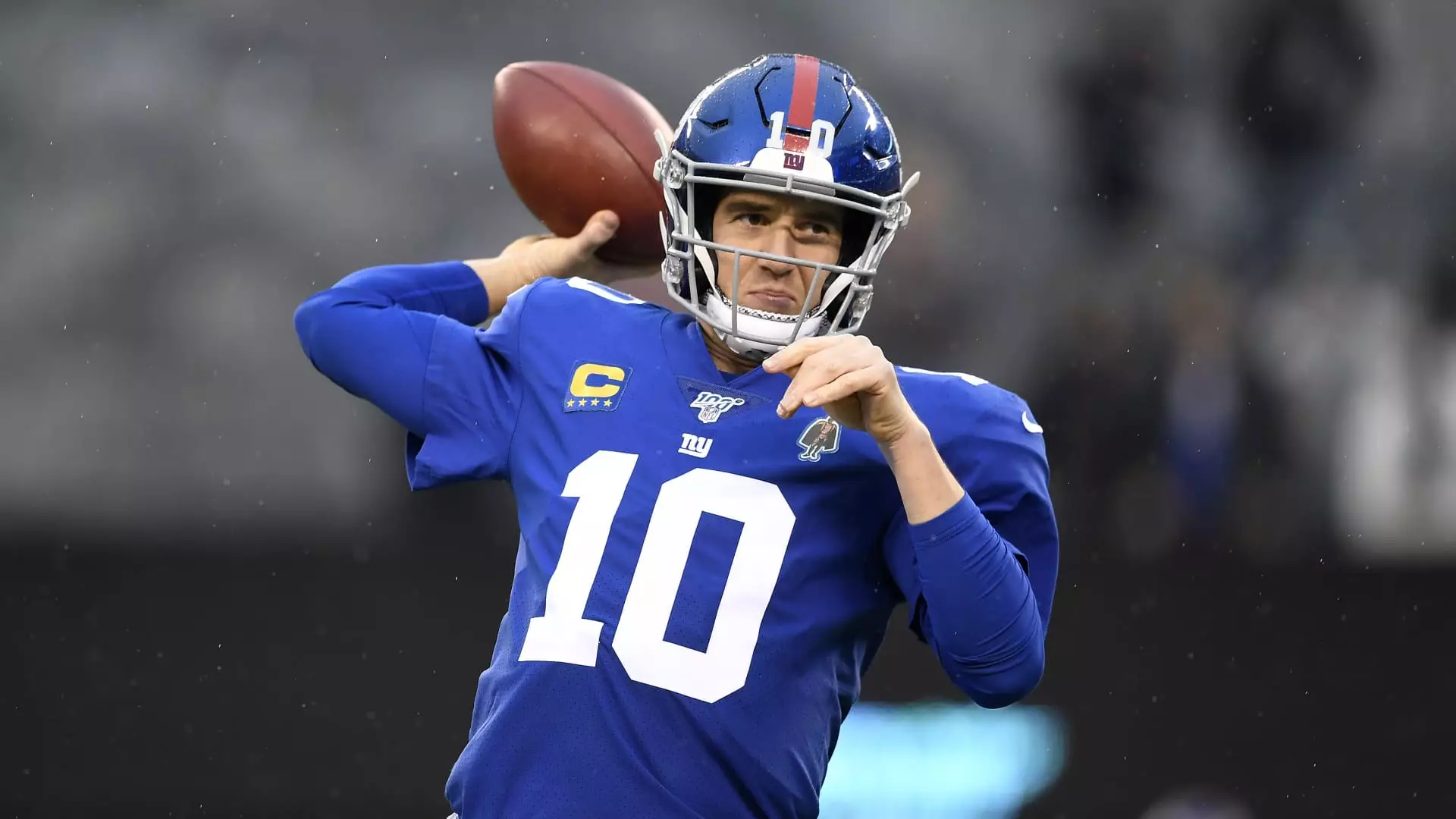In recent discussions about NFL ownership, Eli Manning’s candid admission that he is “priced out” of buying into the New York Giants strikes a chord that resonates beyond individual financial limitations. His acknowledgment underscores a disturbing trend: the relentless inflation of sports franchise valuations, which now soar into the billions, distorting the perception of ownership as a feasible or even responsible endeavor for most Americans. While a billionaire’s game, these astronomical figures reflect a deeper polarization of economic opportunities and cultural priorities, favoring the ultra-wealthy while distancing the average fan or former athlete from meaningful participation. Manning’s admission is both pragmatic and sobering, exposing the greed-fueled bubble inflated by speculative investors eager to capitalize on the sports industry’s lucrative allure.
The Hypervaluation of Sports Franchises: Wealth for the Few
NFL teams are increasingly viewed as high-stakes investment vehicles rather than community-based institutions. Valuations skyrocket with each passing quarter—rising from $7.85 billion for the Giants to over $10 billion for the Lakers—highlighting how money now dominates sports culture. These valuations are driven more by financial engineering and luxury brand status than actual community value or sporting success. The fact that a 1% stake is now valued at a staggering $100 million illustrates the consolidation of wealth within a privileged tier, effectively turning ownership into a symbol of status rather than sport. The implications are deeply troubling; opportunities to own a stake in a revered franchise are now confined to an elite few, further marginalizing ordinary fans and former players who, like Manning, dream of ownership but are priced out by an insatiable profit motive.
The Ethical Dilemma: The Corrosion of Sportsmanship and Integrity
Manning’s reasoning extends beyond mere financial barriers; he reflects a moral concern about conflicts of interest and the integrity of his professional commitments. His reluctance to participate in ownership due to fears of influencing his broadcasting career reveals a broader issue—the dangerous entanglement of sports, media, and commerce. When ownership and media roles blur, the integrity of sports is compromised, transforming competitions into profit-driven spectacles rather than genuine contests. This intertwining raises questions about the sustainability of sports as a form of entertainment rooted in fairness and authenticity. Manning’s stance signifies a pushback against this corrosive synergy, advocating for sports to retain their human and community-centered essence amid the relentless ascent of corporate greed.
The Disparity Between Wealth and Cultural Significance
Ownership in major sports leagues is increasingly viewed as a legacy of wealth rather than a commitment to the community or sport itself. The NFL’s recent policy change allowing private equity firms to acquire stakes exemplifies this shift, transforming franchise ownership into a financial transaction rather than a public service. The influx of billionaires and billion-dollar valuations threaten to diminish the cultural and social significance of these franchises, reducing them to high-yield assets rather than community institutions that foster local identity. Manning’s decision to step back from ownership opportunities reflects an understanding that the game’s true value lies elsewhere—probably in nurturing youth sports, advocating for fair play, or maintaining the sport’s integrity—rather than succumbing to the siren call of billion-dollar deals.
A Call for Fairness and Responsibility in Sports Economics
The exaggerated valuations and the monopolization of sports ownership highlight the urgent need for a more equitable and accountable approach to sports economics. The focus on maximizing profit often comes at the expense of community involvement, player welfare, and fan engagement. As discussions about minority stakes become more common, it is clear that the sport industry is at a crossroads: should it perpetuate its role as an exclusive investment domain, or can it pivot towards serving the broader public good? A center-leaning perspective advocates for reforms that prioritize transparency, fair access, and social responsibility. Sports must reclaim their role as unifiers and morale boosters, not just as lucrative assets for the wealthy elite. Manning’s choice serves as a reminder that sports should be about passion and community—values that are increasingly overshadowed by the sterile pursuit of wealth.
In this landscape, the challenge lies in balancing economic sustainability with social responsibility. The dream of ownership, once accessible to dedicated fans and athletes, is slipping further away as prices surge beyond reach. It is essential for society to recognize the dangers of this trend and demand a future where sports retain their connective and cultural power—rooted not in greed but in shared human experience.

